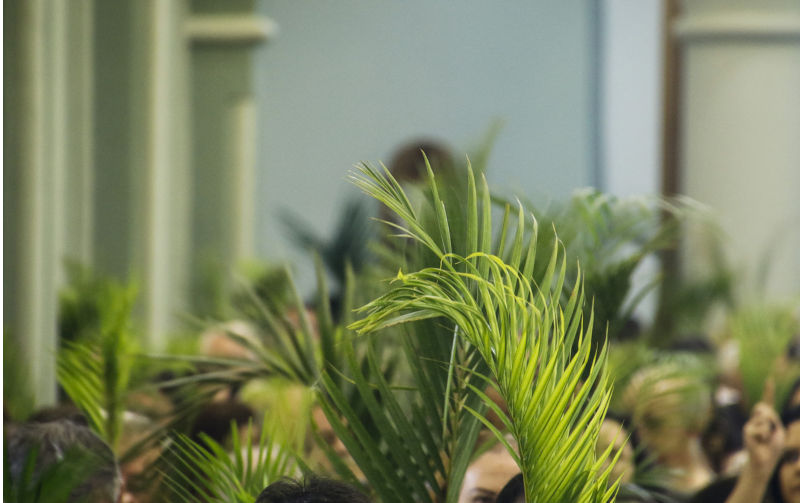Imitation accelerates
March 30, 2024
The whole world is experiencing an escalation to extremes because we imitate each other to a profound degree. We should choose our models more carefully.
There are over 100 million people who have been forcibly displaced from their homes and over 36 million of these are seeking refuge in other countries. We are in the grip of a rapidly changing climate. All forms of media are thriving on tales of violence, dissention and disinformation. Certain news barons make their fortune by paying staff liars to tell lies.
There are about 110 armed conflicts in the world right now. We see the major ones on the news nightly. Of course, we dont see the violence in West Papua because foreign journalists are not allowed into that place, just up there on our doorstep. (Let us not confuse PNG with West Papua. Ever.)
The invention of new and deadlier weapons is an industry designed not only to kill, but to bring financial gain. Australia spends 10 times more on weapons than it does on foreign aid, thus ensuring our weakening influence, especially in our region. Australia aims to be among the top ten arms exporters in the world. Thats not only about defending ourselves; its an escalation to the extremes of making money.
Australian fear is a hallmark of our history, and the AUKUS deal is another symptom of that fright. More than $350 billion is tied up in this frantic bid for protection, yet the submarines may not eventuate for years. No wonder the acronym AUKUS puts Australia first. Had the US been first it would have read USUKA - You sucker.
We are, indeed, caught in the vortex of an escalation to extremes.
It is intriguing that many major cities across the world boast a large statue, in a public place, of a man on a horse. Most statues show the man with one hand free, very often raised in an attitude of power and victory. Over thirty per cent of the statues show the man with a weapon in his free hand. Even though the horse is not now used in war, the numbers of these statues have, amazingly, risen. How strange that dictators even today want to be immortalised on a horse.
And then, all over the world, we get Palm Sunday every year. And here comes Jesus, riding on a donkey. Not on a horse of victory, but on a donkey, and him embodying active nonviolence. He goes into the temple, the heart of the political and religious power of his time, and upends the financiers tables, claiming that the place of prayer had become a den of thieves. (Matt 21:13)
It was an anti-militarism march, challenging the Roman Empire and its collaborators, who depended on conquest, one-upmanship and violence. Jesus wasnt merely anti something; he was embodying an alternate way of being human. Jesus leads a march of marginalised peoples, the ones considered of no account, the usual fodder for national violence. Hes on a donkey, not a war horse, and they are waving palms, not swords.
The teachings that Jesus gave have changed the world, and they would change it even more if we had the courage to imitate him. But some say, Imitate? You wont get me imitating anyone! Im an individual! Im unconventional, unique, I do my thing. Really?
In reality, we are born imitators. Its how we learn anything: ask any teacher. The fashion industry would collapse without imitation. Look at sporting matches. Almost identical participants engage in almost identical moves to pursue the very same goal. Actually, sport is a brilliant human invention to channel our endemic imitation into something innocuous like the possession of a trophy. Were not very different from each other at all. We are terrific copy-cats.
We also imitate others, however, in violence. I bad-mouth you and you call me names. I hit you, you hit me. You shoot my family, I shoot yours. Youve got big submarines, so I want some too.
How about mounting another escalation to extremes? Most people have more goodness than violence in them, so why not build on that? Why not work towards escalating that goodness? Why not choose carefully whom to imitate?
What if every person reading this told someone that they loved them today? Or said hello over the back fence to someone they usually ignore? Or refused to like some snide comment on social media? Or said a genuine please or thank you in a shop? Or wrote a letter or sent a text congratulating a politician, a teacher, or a public figure for doing something well? Or argued a point with someone without getting heated?
The man on the donkey really does have the answer. He said to love our enemies. (Matt 5:43-48)
Martin Luther King said: this command is an absolute necessity for the survival of our civilisation. It is love that will save our world and our civilisation, love even for enemies.
But this love is not sentimental or emotional. This love is a determined goodwill for all people. King says: It is the refusal to defeat any individual. you seek only to defeat evil systems. Individuals who happen to be caught up in that system, you love, but you seek to defeat the system.
Lets imitate the real heroes, both women and men. Imitate the people who subscribe to an escalation to extremes of love, joy, peace, patience, kindness, goodness, gentleness, faithfulness, self-control, forgiveness and courage. We cant do everything, but we can do this, and each of us can do it very well.
Lets get off our high horse and choose a donkey instead.

